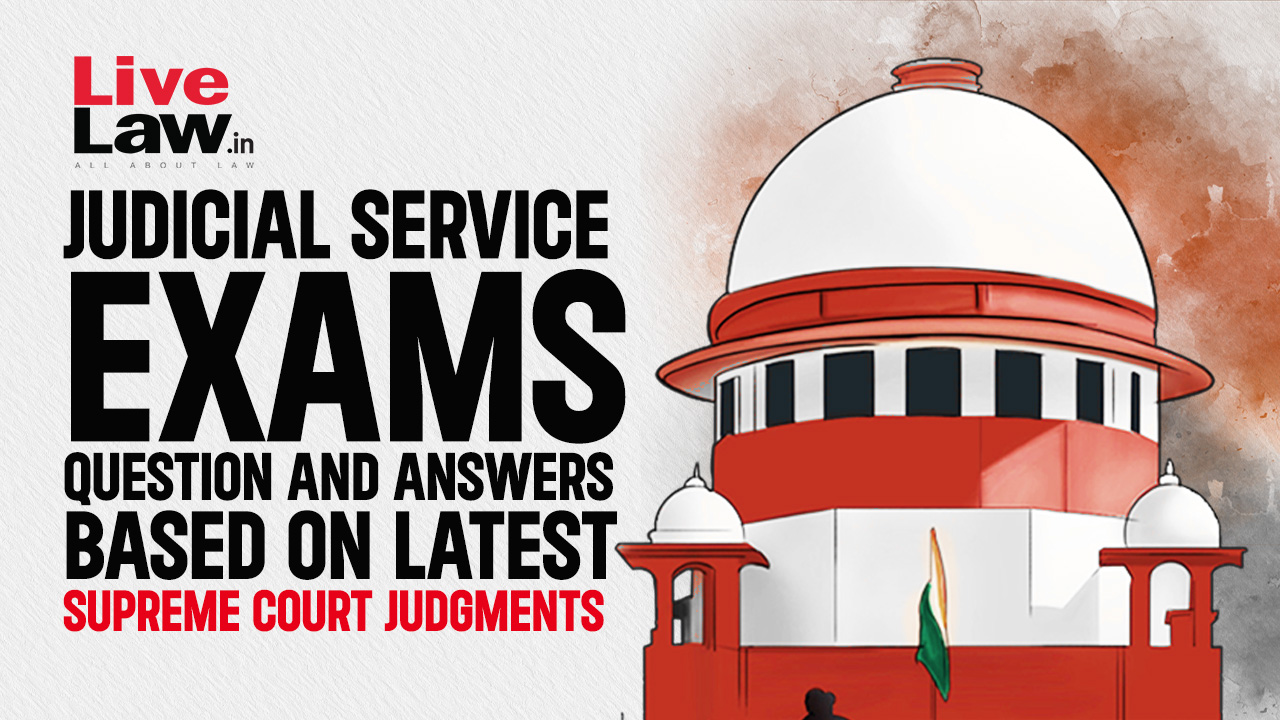 |
|
This article presents a series of multiple-choice questions (MCQs) based on recent Supreme Court judgments, designed to prepare law students for examinations. Each MCQ focuses on a specific legal issue, offering a set of potential answers and the correct option. The inclusion of case titles and citations allows for easy verification and further research. The questions cover a diverse range of legal topics, including criminal procedure, civil procedure, specific relief, the Transfer of Property Act, the Negotiable Instruments Act, the Evidence Act, and arbitration. The format is straightforward, yet the depth of the legal concepts involved highlights the importance of understanding not just the outcome of the cases but the underlying legal principles and reasoning of the Supreme Court. The explanations provided with each answer are concise but crucial in providing a comprehensive understanding of the Court's decisions. The reliance on LiveLaw as a source suggests the timeliness of the information and its relevance to current legal practices. The comprehensive coverage of various areas of Indian law ensures that the MCQs are a valuable resource for students aiming to attain a thorough understanding of the subject matter.
The questions cover critical aspects of Indian procedural and substantive laws. For instance, the question on Section 197 of the Code of Criminal Procedure (CrPC) clarifies the limitations of the protection afforded to public servants, emphasizing that acts outside their official duties are not shielded. This highlights the importance of distinguishing between actions performed within the scope of official responsibilities and those that constitute criminal misconduct. The question on Order XXIII Rule 3 of the Code of Civil Procedure (CPC) pertaining to compromise decrees reveals the possibility of challenging the validity of such agreements even after a decree has been passed, emphasizing that a lack of adherence to the agreed terms might warrant a recall application. This underscores the significance of ensuring proper understanding and adherence to the terms of compromise agreements. Similarly, the discussion on Section 22 of the Specific Relief Act (SRA) demonstrates that specific performance decrees inherently grant possessory rights, making a separate application redundant. This knowledge is crucial for efficient legal proceedings in cases of specific performance.
The MCQs also address intricate matters regarding the Transfer of Property Act, where the distinction between simple mortgages and mortgages by conditional sale is explicitly defined, particularly concerning the mortgagor’s continued possession. This highlights the need for a careful examination of the mortgage deed conditions. The application of the Henderson Doctrine to Section 11 of the CPC clarifies the principle of constructive res judicata, emphasizing that all issues arising from the same subject matter should be litigated in a single suit. This prevents repetitive litigation and maintains judicial efficiency. The issues related to the Negotiable Instruments Act underline that an authorized signatory of a company cannot be held liable for compensation in a cheque dishonor case. This signifies the need for specific legal understanding regarding liabilities arising from negotiable instruments. The application of Section 300 of the Indian Penal Code (IPC) in cases involving lethal weapons and resulting death underlines the significance of intent, even if not premediated, highlighting the nuances of criminal culpability. Finally, the inclusion of a case examining the admissibility of statements made by an accused en route to the police station highlights procedural complexities in evidence law. The systematic presentation of these various legal concepts in MCQ form makes them easily digestible for students, thereby reinforcing their learning process effectively.
Source: Important MCQs Based On Latest Supreme Court Judgments For Law Examinations
